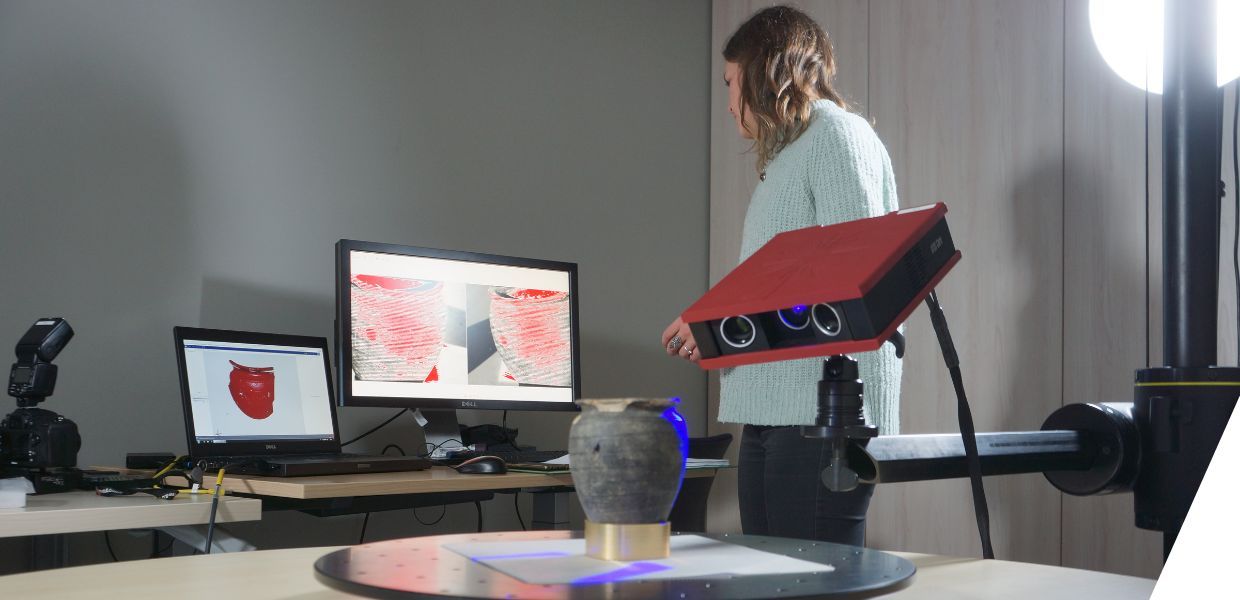A new standard in 3D digitisation
The Digital European Programme-funded project EUreka3D has ended at the close of 2024. The two-year project marks a significant milestone in the field of 3D cultural heritage preservation and digitisation. One of the standout achievements of EUreka3D has been its emphasis on creating ‘Memory Twins’. These go beyond traditional digital twins (3D models that serve as an accurate and detailed digital copy of a physical object or building) by integrating 3D digitised models and their associated metadata with extensive paradata.
Paradata refers to information about the process and provenance of a digital object, as well as information about the processes, tools, and methodologies used to create data. Paradata plays a crucial role in ensuring transparency, reproducibility, and contextual understanding of digital heritage collections. Moving from digital twins to memory twins, through the introduction of paradata, denotes an important change in the approach to 3D across the cultural heritage sector, spearheaded by the EUreka3D project.
Quality first
Quality has been a cornerstone of EUreka3D’s approach. The project underscored the necessity of rigorous quality assessment as an integral part of 3D digitisation. Every aspect, from the equipment used to the environmental conditions and software processes, was carefully calibrated and captured as paradata for the ‘memory twins’ created by the project. By prioritising quality, EUreka3D has set a benchmark for future digitisation projects, demonstrating that meticulous planning and execution are essential to capturing the complexity and dynamism of cultural objects.
New platforms, new content
One of the systemic needs in the cultural heritage sector for 3D is the need for sustainable, robust, user-friendly platforms for uploading, storing and hosting 3D models. The EUreka3D project developed and launched the Data Hub to meet this challenge. It provides a hosting platform that securely hosts 3D models from any cultural heritage institution, allows for clear metadata and paradata modelling and linking, provides persistent identifiers and Linked Open Data, maps to the Europeana Data Model, and makes these models accessible and viewable in the EUreka3D viewer.
Additionally, hundreds of 3D models produced during the project are now available on Europeana.eu. These models are not just static digital replicas but dynamic resources for education, research, and public engagement. They support immersive experiences, allowing audiences to explore and interact with cultural heritage in unprecedented ways. This collection of models is truly pan-European: they have been digitised and delivered by the Pescia Paper Museum in Italy, the Bibracte archaeological site in France, the Girona Cinema Museum, Cyprus University of Technology, and others.
Looking Ahead: EUreka3D-XR
The upcoming Digital Europe funded project, EUreka3D-XR, is the successor to EUreka3D. This upcoming initiative promises to build on the foundations of EUreka3D and ensure sustainability, with a focus on extended reality (XR) technologies. EUreka3D-XR aims to enhance the accessibility and interactivity of 3D heritage collections, leveraging augmented and virtual reality to create even more engaging and immersive experiences.
Check the projects page on Pro to get the latest news from the project when it kicks off, and explore all of the achievements of EUreka 3D.


